Language
- Deutsch
- English
- Español
- Français
- Italiano
- Nederlands
- Português
Currency
- AUD Australian Dollar
- CAD Canadian Dollar
- EUR Euro
- GBP Pound Sterling
- SGD Singapore Dollar
- USD US Dollar
- ZAR Rand

Virtually all our clients ask about tipping on safari. Like anything to do with money, perspectives on gratuities are shaped by so many different factors, including your culture, the culture you are visiting, your personal relationship with money, your expectations of service, and prevailing social norms.
Tipping in Africa can be a complex issue, but fortunately we've been planning safaris since 1998. Here is our beginner's guide to tipping on safari…
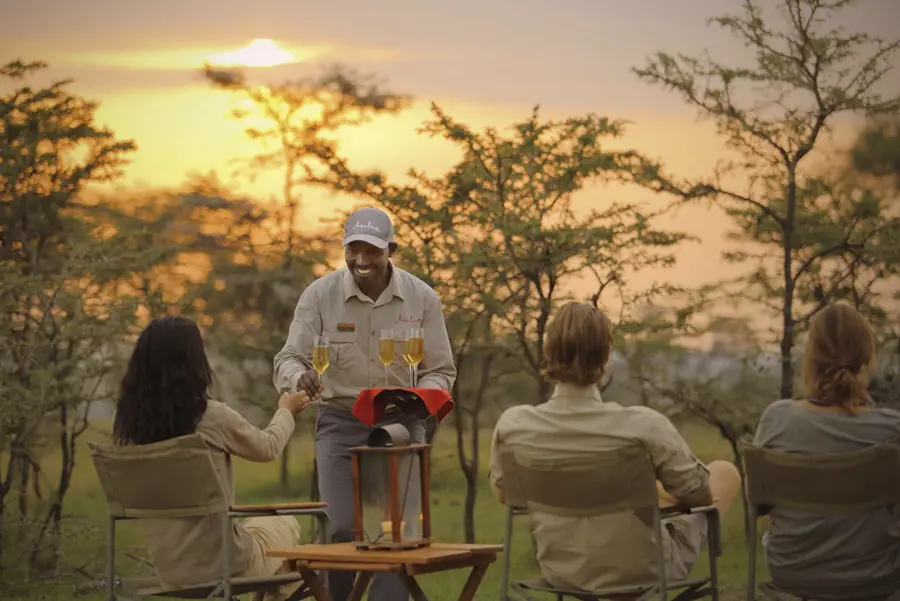
In Africa, it is customary – but not obligatory or mandatory – to give tips to service staff in gratitude and thanks for good service. Gratuities can be increased or decreased depending on the level of service you are given: a high tip for exceptional assistance or a low one for going-through-the-motions, just-doing-my-job mediocre service.
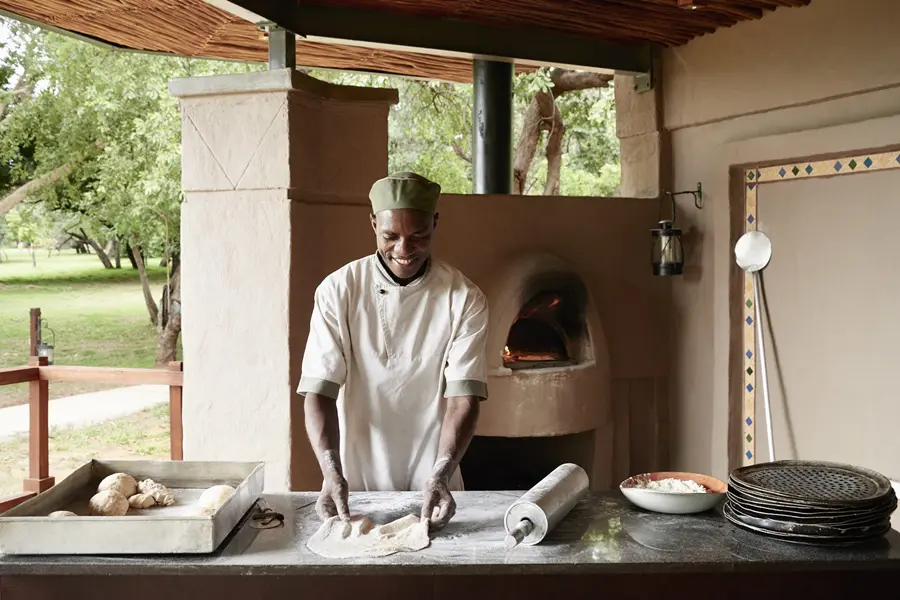
This is hard to answer as it's not a clear-cut issue for many travellers. To help answer the question of whether you should be tipping on safari, let's look at it from:
Travellers from the US generally come from a culture where tipping is the norm and expected, while those from Europe or Australia generally don't, so are often unsure of how to tip on safari.
Some would simply like to do away with tipping on safari altogether and add the money onto the final bill for a trip. Although this is a commendable idea, it's hard to put into practice because a safari has so many moving parts. Also, would brilliant staff at one lodge sacrifice a good tip for average staff at another?
Some guests object to tipping on the grounds that the workers' salaries should be enough to cover their living expenses and that lodge owners should pay more. This, once again, is a commendable idea but your safari costs cover not only wages but also concession fees, fuel, insurance, security, maintenance, food, beverages, Wi-Fi, entertainment, maintenance – the list is endless! An increase in wages would cause an increase in costs to you as other costs – like conservation fees or pumping borehole water – are fixed. Many lodges are using solar power, starting their own kitchen gardens and so on, in order to cut costs where possible and pay workers as much as possible.
Bear in mind that a major cost for owners is housing, feeding, clothing and medically caring for staff who must live on the property for weeks or months at a time. Workers cannot catch a bus or train home to their apartments at the end of their shifts and they cannot work a second job either.
Most guests expect to tip and make provisions to do so in their budgets – but we stress that gratuities are completely at your own discretion for service you feel warrants them.
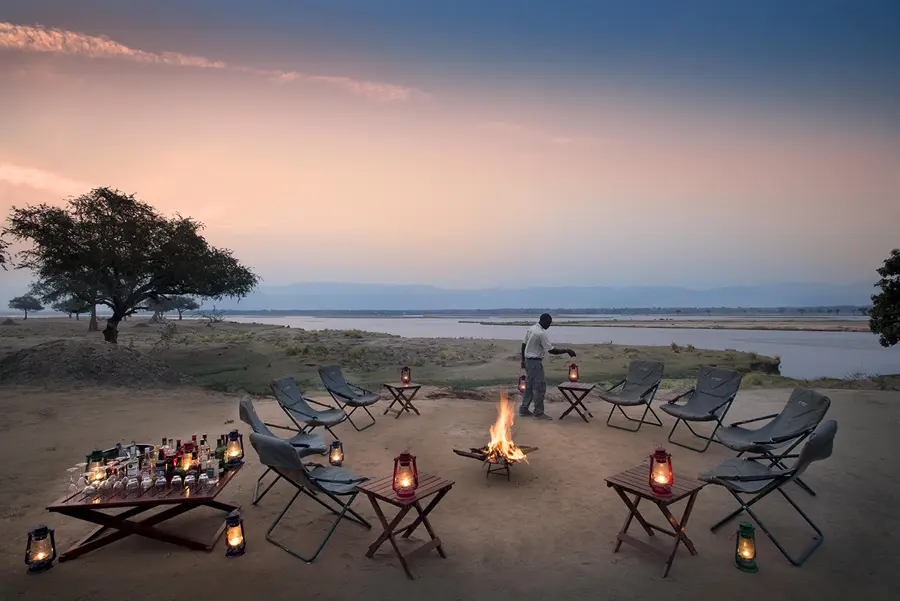
Of course, you say, staff will want tips. Who wouldn't want ‘free money' on top of their salaries? Once again, it's not as simple as that. Think of a tip as more than just a ‘thank you' for making your bed or showing you a lion – it's also in recognition of the following:
Safari staff are responsible for our safety, comfort, health and nutrition, often under difficult circumstances that we know nothing about. While we're enjoying drinks in the boma, kitchen staff may be fending off marauding vervet monkeys. While we're out on a blissful boat cruise, they may have to contend with pipes broken by elephants looking for water. The behind-the-scenes dramas of a lodge are incredible, and a safari tip is often a welcome recognition of that extra work.
Some guests may feel that a ‘safari is expensive enough' so tips are an unnecessary added expense. From a worker's perspective, who returns to a village with no running water or electricity, it may be puzzling to see visitors who have pricey cameras, binoculars, watches, and jewellery worth several years' salaries baulking at paying a relatively small amount in tips. The thinking – rightly or wrongly – may be that a guest who can afford a $10,000 safari could surely afford to tip $100.
A tip as more than just a ‘thank you' for making your bed or showing you a lion – it's also in recognition of the hard work that goes into making your stay extra special. Gratuities are completely at your own discretion for service you feel warrants them.
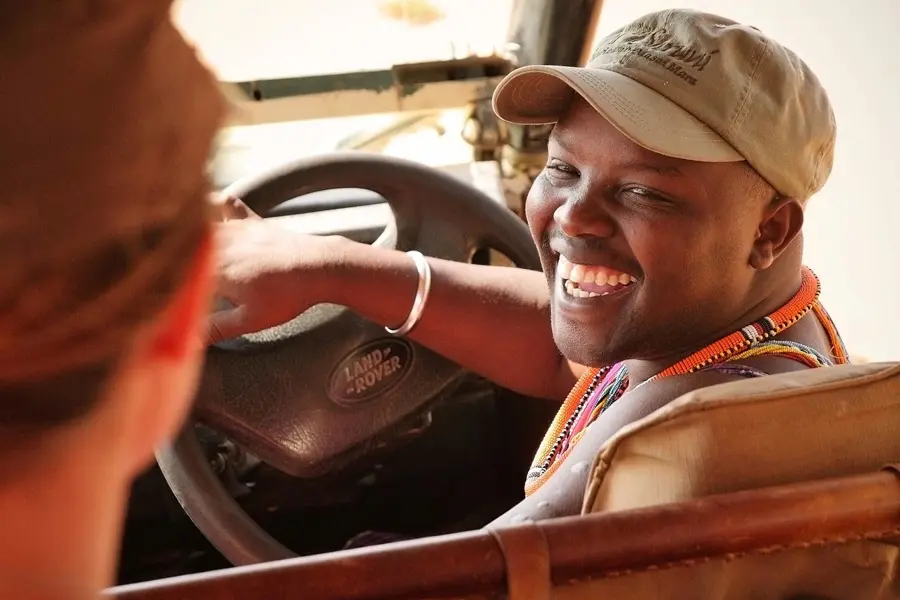
Generally, tips are given to workers who are not ‘professionals' in the sense that they haven't necessarily had significant tertiary education to qualify for a specific job. There are some exceptions though, like spa therapists or guides, who generally hold formal qualifications.
You wouldn't normally tip the following individuals on safari:
You would tip the following individuals on safari:
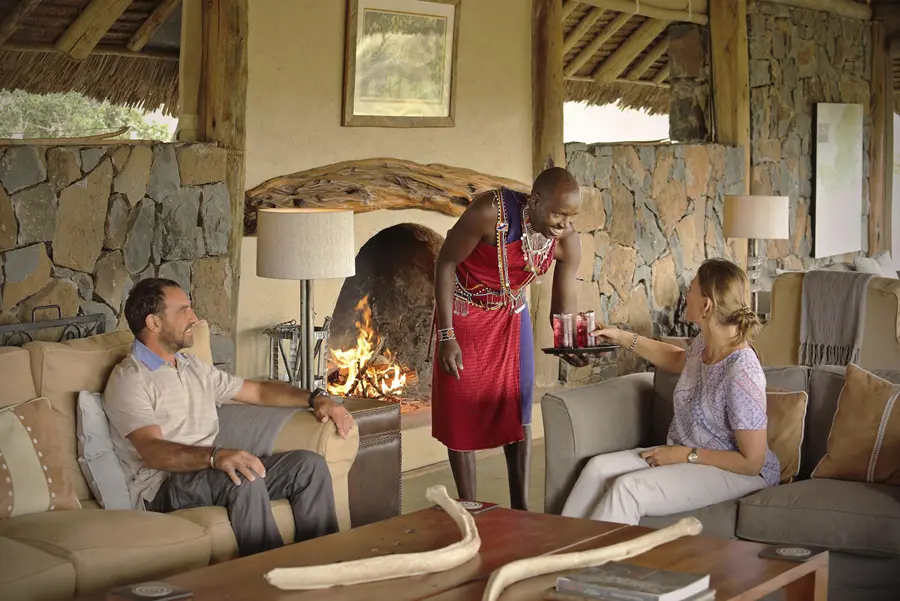
This is where it gets tricky because there is no uniformity of tipping on safari – every camp or lodge has its own system that you have to navigate. Generally, these are the most common methods:
1. Placing Cash In A Communal Tip Box
Located in the main area or mess tent, this is the easiest option as you simply put your tip into a locked box. Sometimes there are separate boxes for front- and back-of-house staff. The manager generally shares out the accumulated tips in intervals. Sometimes there is one box for your guide and tracker and another for all other staff. This system eliminates any awkwardness about handing over money and does not allow staff to know how much specific guests tipped them.
2. Handing Money to the Manager When You Leave
If there is no box, some guests do this upon departure. Some will specifically say to whom the money must be given, while other guests leave it up to the manager's discretion.
3. Handing Cash to Individual Staff
This is also an option but makes it clear that you are tipping some and not others, as well as how much money you are giving.
4. Leaving Cash in Your Room When You Depart
This is not recommended as staff may assume you've forgotten it and radio the guide to drive back for you to get it. Staff are well trained not to ‘steal' and will hand over anything found in your room to the lodge manager. Honesty is a big part of running a successful lodge.
5. Adding It to a Credit Card Bill
This is only possible in a few lodges and camps with credit card machines. Since they attract hefty surcharges, many camps don't have them. If you have purchased something from the safari shop and want to add a tip to the bill, chat with the manager to arrange this and make a note on the slip indicating how much the gratuity is. This method can be a lifesaver if you want to tip generously but don't have enough cash with you.
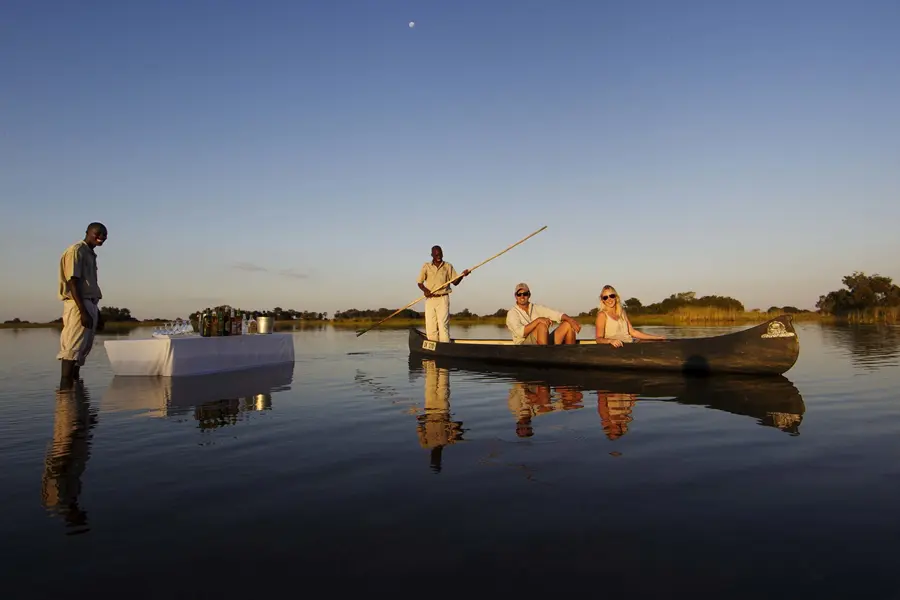
Once again, this is a tricky one to answer because there are so many factors: the service you received, your personal budget, your ideas around gratuities, etc. The rule of thumb is to tip as much as you can when the moment comes. We've never regretted a substantial safari tip but have often wished we had more cash to tip with.
No matter how much you tip, don't apologise for the amount. Simply hand it over in whatever form and say thank you sincerely. Gratitude, appreciation and recognition are always warmly received by staff.
So how much do you tip on a Kenya safari? How much should you tip on a Tanzania safari? Or how much do you tip a butler on safari?
Here is a rough guideline for tipping on safari – feel free to adjust the amounts to suit your budget:
| Service | Amount | ||
|---|---|---|---|
| Transfer | USD 5 (American dollar) per person to the driver. Consider increasing if you had extensive help with your luggage. | ||
| General Staff at Safari Lodge/Camp | USD 20 per person per day | ||
| Guide | USD 20 per person per day | ||
| Tracker | USD 15 per person per day | ||
| Butler | USD 15 per person per day |
Here is a rough guideline for tipping in Africa's cities:
| Service | Amount | ||
|---|---|---|---|
| Guided Tour | USD 20 per day. If multi-day tour with the same guide, tipping should be based on per day and can be given to the guide at the end of the tour. |
||
| Transfers | USD 5 per person to the driver. Consider increasing if you had extensive help with your luggage. | ||
| Waiter at Restaurant | 10 – 15% of the overall bill. This fee is not automatically added, so include at payment stage. For larger bookings, keep a look out to see if the bill already includes gratuities. | ||
| Hotel Porter | USD 5 per provider |
Here is a rough guideline for tipping in South Africa & Namibia:
| Service | Amount | ||
|---|---|---|---|
| Guide | ZAR R400 | ||
| Tracker | ZAR R300 | ||
| Butler | ZAR R300 | ||
| General Staff | ZAR R400. There is usually a communal box where this tip could be shared. It goes towards staff behind the scenes like chefs/kitchen staff and ground maintenance staff. |
||
| Guided Day Tour | ZAR R350. If multi-day tour with the same guide, tipping should be based per day and be given at the end of the tour. | ||
| Waiter at Restaurant | 10 – 15% of the overall bill. This fee is not automatically added, so include at payment stage. For larger bookings, keep a look out to see if the bill already includes gratuities. | ||
| Petrol Stations | R5 per re-fill for the petrol attendant. They will refill your petrol in your vehicle and may wash your windows as well. |
Of course, there are also regional variations and country-specific activities:

After travelling the length and breadth of every destination we've been recommending since 1998, these are our practical suggestions to make tipping on safari easier:
Note the instances where you think you may be expected to tip – such as the transfer driver from the airport to your hotel, the porter at the hotel, or the waiter for dinner that night – and how much you want or can afford to give them. Ask your Africa Safari Expert for advice if you're in doubt.
Split them either per day or per accommodation. This makes it much easier to keep track of your cash.
These are easier to hand over and few places will be able to break $50 or $100 notes. In some countries, like Zambia, you are legally required to get all change in the local currency, leaving you with a handful of kwacha that you can't use back home or elsewhere.
South Africa is the only country where you can reliably draw money from ATMs or cash machines, which makes tipping in South Africa rather effortless. For the rest of the safari destinations in Africa, bring cash along with you.
Use the in-room safe. If there isn't one, ask the manager to put your valuables – like money and passports – in the lodge's safe or strongroom.
The currency is the most widely accepted across Africa, especially in places like Zimbabwe and Victoria Falls. It's also much easier to stick to one currency if you are crossing borders or doing a multi-destination safari rather than dealing with pula in Botswana, or shillings when tipping in Kenya.
Get in touch with our team of Africa Safari Experts to help tailor-make a trip that's right for you: